In ancient Greek a hippodromos or hippodrome was a stadium for horse racing and chariot racing. The name is derived from the Greek words hippos and dromos.
Corrida was a French Thoroughbred racehorse who won races in France, Belgium, Germany and England and is regarded as one of the top fillies of the 20th century worldwide. She is best known for her back-to-back wins in France's most prestigious horse race, the Prix de l'Arc de Triomphe.

The Hippodrome is a building on the corner of Cranbourn Street and Charing Cross Road in the City of Westminster, London. The name was used for many different theatres and music halls, of which the London Hippodrome is one of only a few survivors. Hippodrome is an archaic word referring to places that host horse races and other forms of equestrian entertainment.
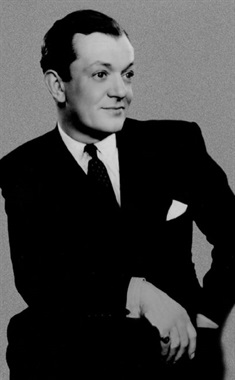
Bobby Howes was a British entertainer who was a leading musical comedy performer in London's West End theatres in the 1930s and 1940s.
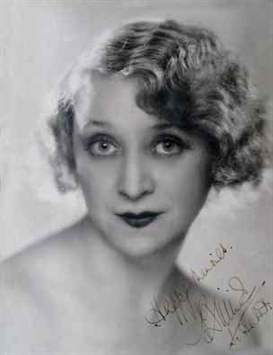
Beatrice "Binnie" Mary Hale-Monro was an English actress, singer and dancer. She was one of the most successful musical theatre stars in London in the 1920s and 1930s, able to sing leading roles in operetta as well as musicals, and she was popular as a principal boy in pantomime. Her best-remembered roles were in the musicals No, No, Nanette (1925) and Mr. Cinders (1929), in which she sang "Spread a Little Happiness".

The Auteuil Hippodrome is a horse racing venue on Route des Lacs in the Bois de Boulogne, Paris, France. The 33-hectare (82-acre) race course opened November 1, 1873. It is designed exclusively for steeplechase racing.

Bertha Belmore was an English stage and film actress. Part of the Belmore family of British actors through her marriage to actor Herbert Belmore, she began her career as a child actress in British pantomimes and music hall variety acts. As a young adult she was one of the Belmore Sisters in variety entertainment before beginning a more serious acting career performing in classic plays by William Shakespeare with Ben Greet's Pastoral Players in a 1911 tour of the United States. She made her Broadway debut as Portia in Shakespeare's Julius Caesar in 1912. She returned to Broadway numerous times in mainly comedic character roles over the next 40 years, notably creating parts in the original Broadway productions of Lorenz Hart and Richard Rodgers's By Jupiter (1942) and Anita Loos's Gigi (1951). She worked in several productions mounted by Florenz Ziegfeld Jr., including appearing in the Ziegfeld Follies of 1925 with W.C. Fields and Will Rogers, and starring as Parthy Ann Hawks in the 1929 Australian tour and 1932 Broadway revival of Jerome Kern and Oscar Hammerstein II's Show Boat.
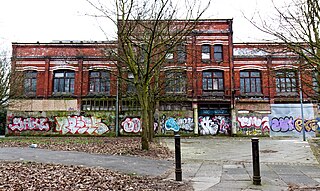
The Hulme Hippodrome in Manchester, England, is a Grade 2 listed building, a proscenium arch theatre with two galleries and a side hall. It was originally known as the Grand Junction Theatre and Floral Hall, and opened on 7 October 1901 on the former main road of Preston Street, Hulme. It was also used for repertory theatre in 1940s, and for recording BBC programmes with audiences between 1950 and 1956. The theatre has been closed since 2018 and a campaign group exists to bring it back into use as a community resource. The stage doors are on Warwick Street. Its local name in memoirs and records is 'The Hipp'. Its national heritage significance includes the first series of programmes made by Morecambe and Wise.

James Alexander Chapman, known by his stage name, Jay Laurier, was an English actor. Early in his career he was a music hall performer, but by the late 1930s he was playing in the works of Shakespeare at the Shakespeare Memorial Theatre in Stratford-upon-Avon as well as having a career in films.
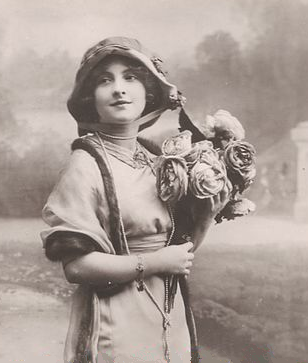
Daisy Burrell was a British stage actress and Edwardian musical comedy performer who also appeared as a leading lady in silent films and in pantomime.

Dorothy Ward was an English actress who specialised in pantomimes, playing the principal boy roles, while her husband Shaun Glenville would play the dame roles. She had a successful 52 year career and played in over 40 pantomimes between 1905 and 1957.

The Roman Forum is located in Beirut, Lebanon.

The Fleet's Lit Up is a musical comedy first staged in London in 1938 with music and lyrics by Vivian Ellis and a book by Guy Bolton, Fred Thompson and Bert Lee. It ran for 191 performances at the London Hippodrome from August 1938 to February 1939. The original cast included Stanley Lupino, Frances Day and Adele Dixon. It was produced and directed by George Black. The title refers to the phrase used constantly by BBC commentator Thomas Woodrooffe during a drunken broadcast for the 1937 Spithead Review.
These Foolish Things was a British revue show. First staged on 12 September 1938 at the Hippodrome in Brighton, it enjoyed a lengthy West End stage run at the London Palladium from 28 September 1938 to 3 June 1939, encompassing a total 489 performances. Featuring in the line-up were The Crazy Gang along with the Sherman Fisher Girls. The show was produced and directed by George Black, who also co-wrote it along with Bert Lee and Harris Weston.

Charles Childerstone was an English operatic tenor and actor who after a career on the stage including a period with the D'Oyly Carte Opera Company from 1896 to 1903 later had a career on the music halls and in film. His theatrical career spanned four decades and included musical comedy and the legitimate theatre.

Maidie Andrews was an English actress and singer who, in career that spanned six decades, was a child actress and later a stage beauty who appeared in musical comedy including the original London productions of No, No, Nanette (1925) and Cavalcade (1931). The latter years of her career saw her taking roles in television and film.

Mr. Whittington is a British musical with a book by Clifford Grey, Greatrex Newman and Douglas Furber and music by Johnny Green, Jack Waller and Joseph Tunbridge with additional lyrics provided by Edward Heyman. It was based on the traditional story of Dick Whittington, designed as a vehicle for the entertainer Jack Buchanan.
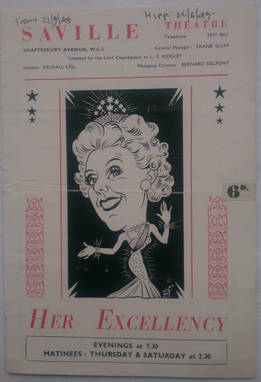
Her Excellency is a musical comedy composed by Manning Sherwin and Harold Purcell from a book by Archie Menzies and Max Kester. A couple of the songs were composed by Harry Parr-Davies. The story takes place entirely in the British Embassy in the fictional San Barcellos.

The Lisbon Story is a 1943 British musical composed by Harry Parr-Davies with a Book by Harold Purcell. It was produced by Edward Black. The plot is a wartime spy thriller set in Lisbon and Paris during the summer of 1942.

Castle in the Air is a comedy play by the British writer Alan Melville, which was originally performed in 1949.

















